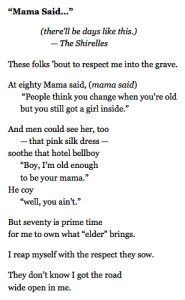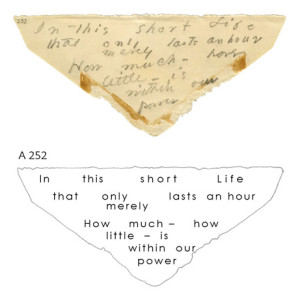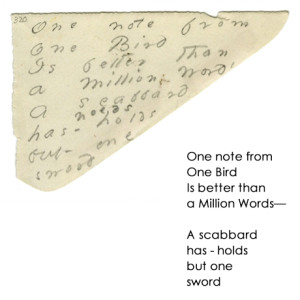Everything’s been said
But one last thing about the desert,
And it’s awful: During brush fires in the Sonoran desert,
Brush fires that happen before the monsoon and in the great,
Deep, wide, and smothering heat of the hottest months,
The longest months,
The hypnotic, immeasurable lulls of August and July—
During these summer fires, jackrabbits—
Jackrabbits and everything else
That lives in the brush of the rolling hills,
But jackrabbits especially—
Jackrabbits can get caught in the flames,
No matter how fast and big and strong and sleek they are.
And when they’re caught,
Cornered in and against the thick
Trunks and thin spines of the cactus,
When they can’t back up any more,
When they can’t move, the flame—
It touches them,
And their fur catches fire.
Of course, they run away from the flame,
Finding movement even when there is none to be found,
Jumping big and high over the wave of fire, or backing
Even harder through the impenetrable
Tangle of hardened saguaro
And prickly pear and cholla and barrel,
But whichever way they find,
What happens is what happens: They catch fire
And then bring the fire with them when they run.
They don’t know they’re on fire at first,
Running so fast as to make the fire
Shoot like rocket engines and smoke behind them,
But then the rabbits tire
And the fire catches up,
Stuck on them like the needles of the cactus,
Which at first must be what they think they feel on their skins.
They’ve felt this before, every rabbit.
But this time the feeling keeps on.
And of course, they ignite the brush and dried weeds
All over again, making more fire, all around them.
I’m sorry for the rabbits.
And I’m sorry for us
To know this.
Today is Earth Day, and the Earth’s report-back to us this year is Not Good.
Right here in California, we’re having possibly our worst drought in more than 500 years (there’s a great little “Beyond A Reasonable Drought” quiz at www.californiaquiz.org), and yet I keep coming across people who very casually “don’t know” or “forgot” that we’re having any kind of drought at all; who actually frown and complain on the 2 out of 365 days it’s overcast in Southern California from something other than smog or massive wildfire smoke, or heaven forbid it actually rains here.
And here’s the thing: that is a 100% totally natural reaction. It’s an adaptive survival trait for the human mind to suppress thoughts that are just too massive and too depressing to comprehend — like drought. Or climate change. Or “we’re all gonna die.” Those may be true thoughts, but they’re not useful thoughts for a human just trying to get through one day and into the next day.
But if we’re going to survive not just day-to-day, but year-to-year, decade-to-decade, humans have to break through that adaptive suppression of some of those Big Dark Thoughts. And that’s where the poets (those “Touched with Fire”) come in and start hurtling rabbit-fireballs.
I would argue that the scientists have (more or less) done, and continue to do, their part — they’ve used reason and logic and numbers to try to convince the other humans of what we need to do to save ourselves. We (more or less) have the science to clean up the Pacific Garbage Patch, re-freeze glaciers, re-plant rainforests, maybe even repair the hole in the ozone and temper human population growth. We (more or less) have fiscal and governmental entities massive enough to implement that kind of global project. What we don’t have are the hearts and minds of the ever-growing masses.
I would argue it’s the poets (and I use “poets” loosely, for all those engaged in the arts of winning hearts and minds) who still have the most work to do if we are going to save ourselves from ourselves — and those poets, we poets, are running out of time.
I have a lot more to say about today’s poem by Alberto Ríos, the inaugural state poet laureate of Arizona, his choice of rabbits, and fire, the location of humans in the poem, the science behind what makes for a memorable poetic image, the fine line between depressing messages and messages that motivate action — but this is all getting quite long. So, let’s skip ahead to the single most hope-inducing, optimistic thing I have heard said about our chances, as a species, of not killing the entire planet right out from under our own feet. It comes from a prominent ecologist in the area of climate change impact on species’ survival, Chris Thomas:
“If nature can bounce back from an asteroid hit, it can probably bounce back from us.”
Happy Earth Day, and here’s to many more.
Love,
Ellen


